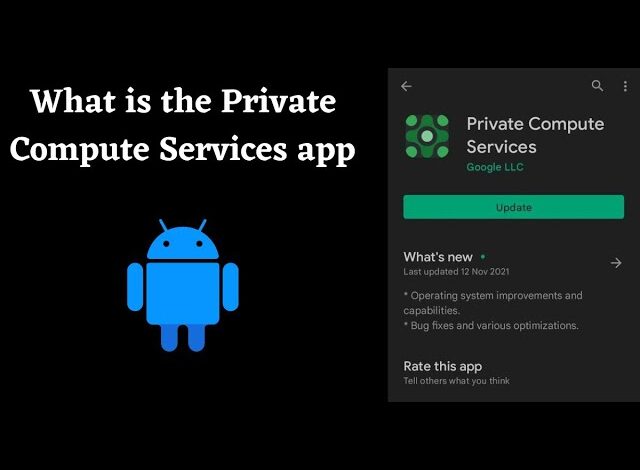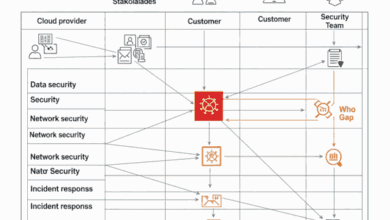Is Private Compute the Key to Secure AI? Here’s What You Need to Know

Unlocking the power of AI: Receiving private information through personal computing applications
introduction
Artificial intelligence (AI) has shaped our digital journey, guiding innovation and automations that redefine everyday experiences. From understanding spoken language in virtual assistants to predictive algorithms that make suggestions for our interests, AI is a constant driving force in today’s technological weaving
But AI brilliance doesn’t outweigh the shadow it casts over data privacy. A.I. This shift has sparked a global conversation about security, and has made us question the trade-off between intelligent animals and privacy.
The privacy paradox in AI
Each click, search and interaction amplifies the AI but also risks self-expression. The digital trails we leave behind are a gold mine for learning algorithms, however, they are fraught with terrible abuse.
Is a personal computer a beacon of hope?
These concerns lead us to an important question: Are personal computers the key to AI security? As we stand between alternatives and privacy, personal computer labs beckon—a possible way to align the intelligence of AI with the sanctity of personal data.
Cautiously optimistic, we venture deeper into the realization that personal computing applications may be mere gatekeepers at the gates of our digital future.
What is Private Compute?
Navigating the digital world safely is paramount, and private compute services lay the groundwork for this adventure. Imagine these services as personal vaults where you can unlock the power of technologies securely, ensuring that the sanctity of your personal data remains intact.
In simple terms, private compute services are systems designed to process and analyze data directly on your device, such as a smartphone or a laptop. Instead of sending your information through the internet to a remote server, or what we commonly refer to as “the cloud,” these systems handle everything locally.
On-device vs. Cloud Processing
- On-device Processing: Your data doesn’t leave your gadget. It’s crunched and utilized right where it was created—be it for recommendations, personalization, or other AI-related tasks.
- Cloud Processing: This involves sending data over the network to a remote server where the actual processing happens, after which the results are sent back to your device.
Why is On-device Processing a Win for Privacy?
- Control: You have the reins. Since your data isn’t traveling across networks, you have more control over it.
- Reduced Risk: Less data travel means there’s a smaller chance of it being intercepted or leaked.
- Quick Response: Processing on your device can be faster, as it skips the journey to and from the cloud.
- Less Dependency: No need for a constant internet connection to process your data.
How Does Private Compute Enhance AI Security?
In the digital age, safeguarding personal information is a paramount concern. Private compute services offer a robust solution to enhance the security of AI technologies. By prioritizing data processing on the user’s device, these services inherently bolster security, transparency, and control.
Reduced Risk of Data Breaches
When data is processed directly on your device, it simply doesn’t leave its origin. This key aspect significantly diminishes the chance of unauthorized access or exposure.
- Local Processing: Data stays where it’s generated, eliminating many vulnerabilities associated with data transmission over the internet or storage on remote servers.
- No External Servers: By avoiding the need for data to reside on external servers, the risk of breaches at those points is effectively nullified.
Increased Control Over Personal Information
Users gain an unprecedented level of authority over their data, thanks to private compute services.
- User Consent: You decide which data is used for AI processing, putting you in the driver’s seat of your digital experiences.
- Selective Sharing: It becomes easier to manage and restrict what personal data gets utilized for AI-driven tasks, reinforcing personal data sovereignty.
Improved Transparency
Understanding how our data is used forms the foundation of trust in technology. Private compute services can lay this foundation by ensuring users have a clear view of data usage.
- Visible Processes: Users can monitor which data is processed and for what purpose, offering a transparent window into the workings of AI on their devices.
- User Engagement: This visibility encourages users to engage with privacy settings, tailoring their digital interactions according to personal privacy standards.
Limitations and Considerations of Private Compute
While private compute services usher in a new era of data privacy and security for AI, they are not without their challenges. Understanding these limitations is crucial for envisioning a future where private compute can be optimized and made accessible to all.
Computational Power
One of the primary concerns with on-device processing is the inherent limitation in computational power compared to cloud-based AI systems.
- On-Device vs. Cloud: Personal devices, despite technological advances, usually have less processing power than cloud servers. This can lead to slower performance for complex AI tasks that require significant computational resources.
- Energy Consumption: Higher energy usage can be another downside. Processing data locally might drain device batteries faster, impacting usability and convenience.
Device Compatibility
Not all devices are created equal, and this disparity can affect the deployment and efficiency of private compute services.
- Hardware Requirements: Advanced AI tasks demand modern, high-performance hardware, limiting the reach of private compute services to newer, high-end devices.
- Software Support: The need for specific software capabilities to run private compute efficiently further narrows the scope of compatible devices.
Navigating the Future
Understanding these limitations is not a sign to retreat but to strategize for improvement. The advancement in hardware technologies, coupled with optimized AI algorithms, promises a future where the gap between on-device and cloud processing power narrows. Similarly, broadening the compatibility of private compute services across diverse devices can ensure more inclusive access to secure and private AI functionalities.
The Future of Private Compute and Secure AI
Potential of Private Compute
The rise of private compute services suggests a shift towards a new standard where security is integrated directly into AI development.
- Inherent Security: By keeping data on the user’s device, private compute reduces the risk of data leaks.
- User Trust: When privacy is prioritized, user trust increases, encouraging wider adoption of AI technologies.
Advancements in Technology
Technological progress is continually enhancing the capabilities of private compute.
- Faster Chips: Device manufacturers are creating faster, more energy-efficient chips designed for on-device AI.
- Better Algorithms: AI algorithms are becoming more efficient, requiring less power and making private compute more viable.
conclusion
Personal computer labs have emerged as an important factor in the quest for secure AI. They offer a promising solution to privacy concerns by generating data locally on the user’s device.
However, it’s important to consider both sides:
- Products on the device can slow down performance for complex tasks.
- Not all tools may be equipped to handle these personal computer tasks.
Is personal computing the key? It is an important part of the puzzle, offering many advantages when faced with certain limitations. As technology advances, the prospects for a safe AI powered by personal computers seem bright.
FAQ
What types of AI applications can benefit from private compute?
- Facial Recognition: By processing data on-device, sensitive biometric information is better protected.
- Voice Assistants: Conversations remain private when processed locally, improving user confidentiality.
Is my phone currently using private compute?
Most modern smartphones have some level of private compute, but it varies by model and operating system. Check your device’s privacy settings for more information.
Will private compute eliminate all security risks in AI?
Private compute significantly strengthens security but doesn’t remove all risks. Ongoing vigilance is needed to address any new vulnerabilities that arise.
What are the ethical considerations surrounding private compute?
Potential biases may exist in on-device AI models. It’s important to ensure that the AI decision-making process is fair and unbiased.
How can I learn more about private compute services?
Look for official documentation from device manufacturers and keep up with news articles discussing the latest in AI and privacy technology.
Call to Action
What do you think about the role of private compute in securing AI?
- Do you believe this is the future of AI?
- Have you experienced the benefits of private compute on your device?
Join the conversation in the comments below. Share your thoughts and questions, and let’s discuss the future of private compute and secure AI together!






